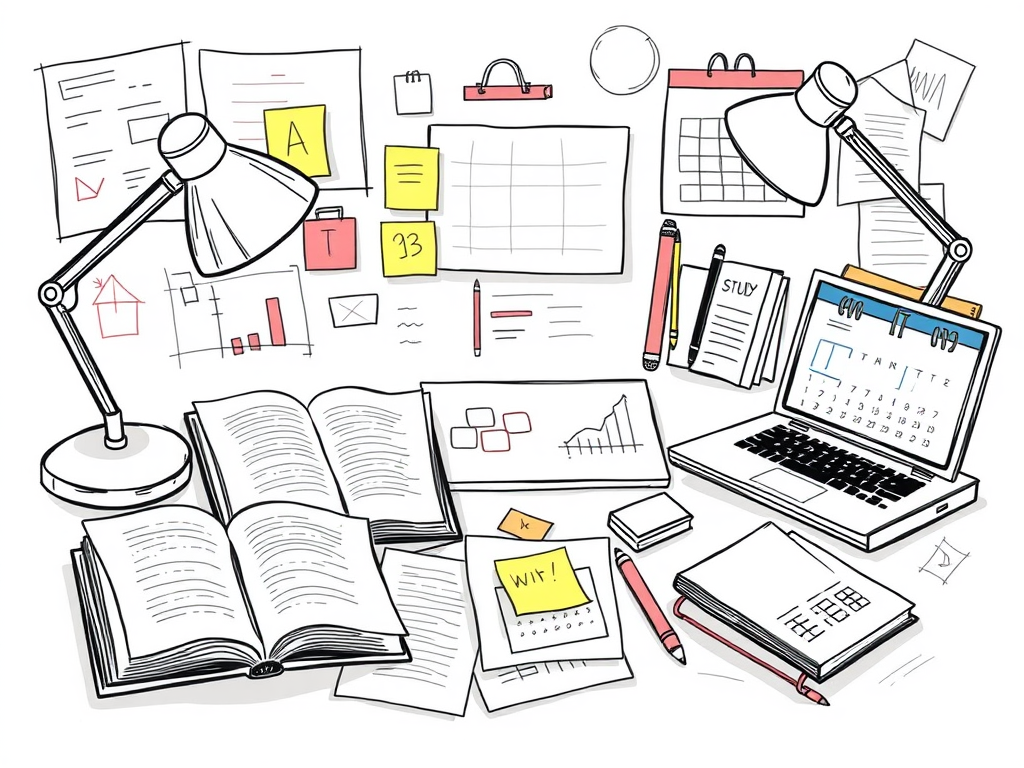When exams are looming, many students (and teachers!) instinctively turn to familiar habits: re-reading notes, highlighting key points, or passively skimming textbooks. But do these methods actually work? According to extensive cognitive science research, the answer is a resounding no. In this blog, we explore what science says about effective review techniques, and highlight strategies that make a real difference to exam performance.
🌟 What Works: Evidence-Based Revision Techniques
1. Active Recall
Active recall is the process of actively retrieving information from memory rather than passively reviewing it. It strengthens memory and improves long-term retention.
- Why it works: When you force your brain to recall information (e.g., answering a question without looking at notes), it builds stronger neural connections.
- Evidence: A 2013 study by Karpicke & Roediger showed students who used retrieval practice scored significantly higher than those who simply re-read material.
- How to use it: Create flashcards with questions on one side and answers on the other, or quiz yourself with past paper questions.
2. Spaced Repetition
This is a technique where review sessions are spread out over increasing intervals of time.
- Why it works: Revisiting information just as you start to forget it strengthens memory traces.
- Evidence: Research by Cepeda et al. (2008) found that spaced repetition improves retention by over 200% compared to massed (crammed) learning.
- How to use it: Set a schedule for flashcard review with increasing intervals (e.g., Day 1, Day 3, Day 6, Day 10).
✅ Tools: Anki, Brainscape
3. Mind Mapping
Mind maps are visual diagrams that link concepts and ideas, helping students see relationships between topics.
- Why it works: Mind mapping engages dual coding theory by combining verbal and visual information, which enhances understanding and recall.
- Evidence: Studies (e.g., Farrand, Hussain, & Hennessy, 2002) show that students using mind maps performed better in recall tasks than those using standard note-taking.
- How to use it: Start with a central concept and branch out with subtopics, keywords, and images.
✅ Tools: MindMeister, Miro
4. The Retrospective Revision Timetable
This method, popularised by Ali Abdaal, involves tracking what you have revised and rating your confidence in each topic. This allows for targeted, evidence-informed revision planning.
- Why it works: It provides a feedback loop that helps focus on weak areas, promoting mastery over time.
- How to use it: After each revision session, rate your understanding (e.g., red/yellow/green) and revisit red/yellow areas more frequently.
✅ Resource: Ali Abdaal’s Guide
5. Retrieval Practice (Kate Jones)
Kate Jones’ book “Retrieval Practice” brings classroom-tested strategies to life with practical advice and solid research foundations.
- Why it works: Regular low-stakes quizzing consolidates knowledge and reveals learning gaps.
- How to use it: Start lessons or revision sessions with quick quizzes or brain dumps.
✅ Book: Retrieval Practice by Kate Jones
❌ What Doesn’t Work: Common but Ineffective Techniques
1. Re-reading Notes
- Problem: Passive, doesn’t engage active memory pathways.
- Evidence: Dunlosky et al. (2013) found rereading had minimal impact on long-term retention.
2. Highlighting Textbooks
- Problem: Creates an illusion of understanding; students often highlight without processing.
- Evidence: Studies show that highlighting alone doesn’t improve performance on comprehension or recall tasks.
3. Cramming
- Problem: Encourages shallow learning and high cognitive fatigue.
- Evidence: Long-term retention drops significantly without spaced practice.
📆 Your Next Steps
- Ditch the highlighters.
- Embrace flashcards, mind maps, and spaced recall.
- Make a retrospective revision plan.
- Quiz yourself regularly.
Good revision is not about time spent, it’s about how you spend it.
📅 Further Learning: Watch These Evidence-Based Guides
- Ali Abdaal – Retrospective Revision Timetable
- Ali Abdaal – Evidence-Based Revision Tips
- Ali Abdaal – Evidence-Based Masterclass
Want to see more exam tips and strategies? Check back every week on the Learning Hub!



